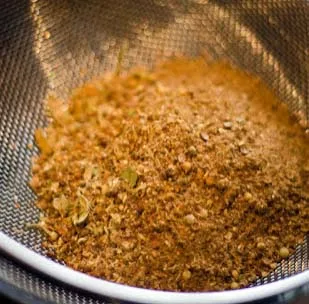Popular African Spices
Africans have developed a distinctive food pallet using a myriad of popular African spices in stews and soups, chutneys, fruits and vegetables and so much more.
Popular African Food Spices and Recipes
African Bird PepperAfrican Bird Pepper comes in a scorching 70,000 -150,000 Scoville Heat Units. African bird pepper, commonly referred to also as piri piri (pepper-pepper)
Cardamom
Cardamom has a gingery pine flavor and if using whole seeds crack before using.
Cinnamon
Cinnamon is made of ground dried tree bark, sometimes left whole. Most of the cinnamon comes from trees of the cinnamon cassia family.
Coriander is the seed of the cilantro plant, the taste is citrus sweet flavor. The African countries of Morocco and Egypt produce a lot amount of the world’s coriander.
Cumin
Cumin is a member of the parsley family and has a strong earthy flavor. During the middle ages, people believed that a joyful life would come to the bride and groom who carried Cumin seeds during the entire wedding ceremony.
Fenugreek
Fenugreek is extremely fragrant and the taste is robust, sweet, and a bit bitter. In cooking, there is not really a substitute for this unique spice.
Garlic
Garlic related to the lily family, grows in heads or clumps of cloves, and garlic is a relative of the onion. Cooks use garlic fresh and dried in recipes, garlic and has a strong flavor and concentrated aroma.Garlic related to the lily family, grows in heads or clumps of cloves, and garlic is a relative of the onion. Cooks use garlic fresh and dried in recipes, garlic and has a strong flavor and concentrated aroma.Garlic related to the lily family, grows in heads or clumps of cloves, and garlic is a relative of the onion. Cooks use garlic fresh and dried in recipes, garlic and has a strong flavor and concentrated aroma.
Ginger
Ginger is a clean, citrus warm intense taste too much ginger translates to hot and spicy on the tongue. Ginger is one of the most popular spices in Africa.
Lemon Grass
Lemon Grass has a strong citrus flavor, substitute for lemon zest in a recipe.
Maggi Cubes
Maggi seasoning cubes are used in almost every African recipe. Some ingredients in Maggi Cubes are palm oil, Wheat Flour, Sugar, Onions, Turmeric, White Pepper, Coriander, and Parsley.
Nutmeg
Nutmeg is a sweet, nutty, heady fragrance and tastes warm and a bit sweet.
Saffron
Saffron is the world’s most expensive spice, Saffron threads are the stigma of the purple crocus and it takes 175,000-225,000 manually selected flowers to make a pound of saffron. Saffron has a strong aroma and a pungent, sweet taste and gives foods a brilliant yellow color.
Tamarind
Tamarind is native to the tropics of Africa tamarind is a brownish slightly sour tasting pod popular in Africa, Latin America, and the Caribbean.
Turmeric
Turmeric is a sharp, peppery, slightly musty, earthy aroma with an astringent flavor. Turmeric also adds vivid yellow color to foods.
Culture and Food of Africa would not be complete without including the African food spice recipe Garam Masala. This easy spice recipe is an easy recipe for vegetables, poultry, soups and stews.
Popular African Food Spice Recipe Homemade Garam Masala
Total time from start to finish 10 minutes
Traditionally, South African Indian recipes call for garam masala, a blend of seven spices, cumin, coriander, cardamom, black pepper, cinnamon, cloves, and nutmeg. Spices give South African Indian cuisine its unique flavor and character. Most South African Indian recipes call for many different types of spices, many you may never have used. Do not assume that these Indian spices are hard to find, most are to be found in your local supermarkets, and if you cannot find them there, visit the local Indian grocery store. Garam masala is a strong spice mixture and is the heart of most Indian dishes.
Homemade Garam Masala Ingredients and Directions
Ingredients
½ teaspoon ground cumin
1 teaspoon ground coriander
1 ½ teaspoons ground cinnamon
1 teaspoon ground cardamom
½ teaspoon ground cloves
½ teaspoon ground black pepper
½ teaspoon ground nutmeg








